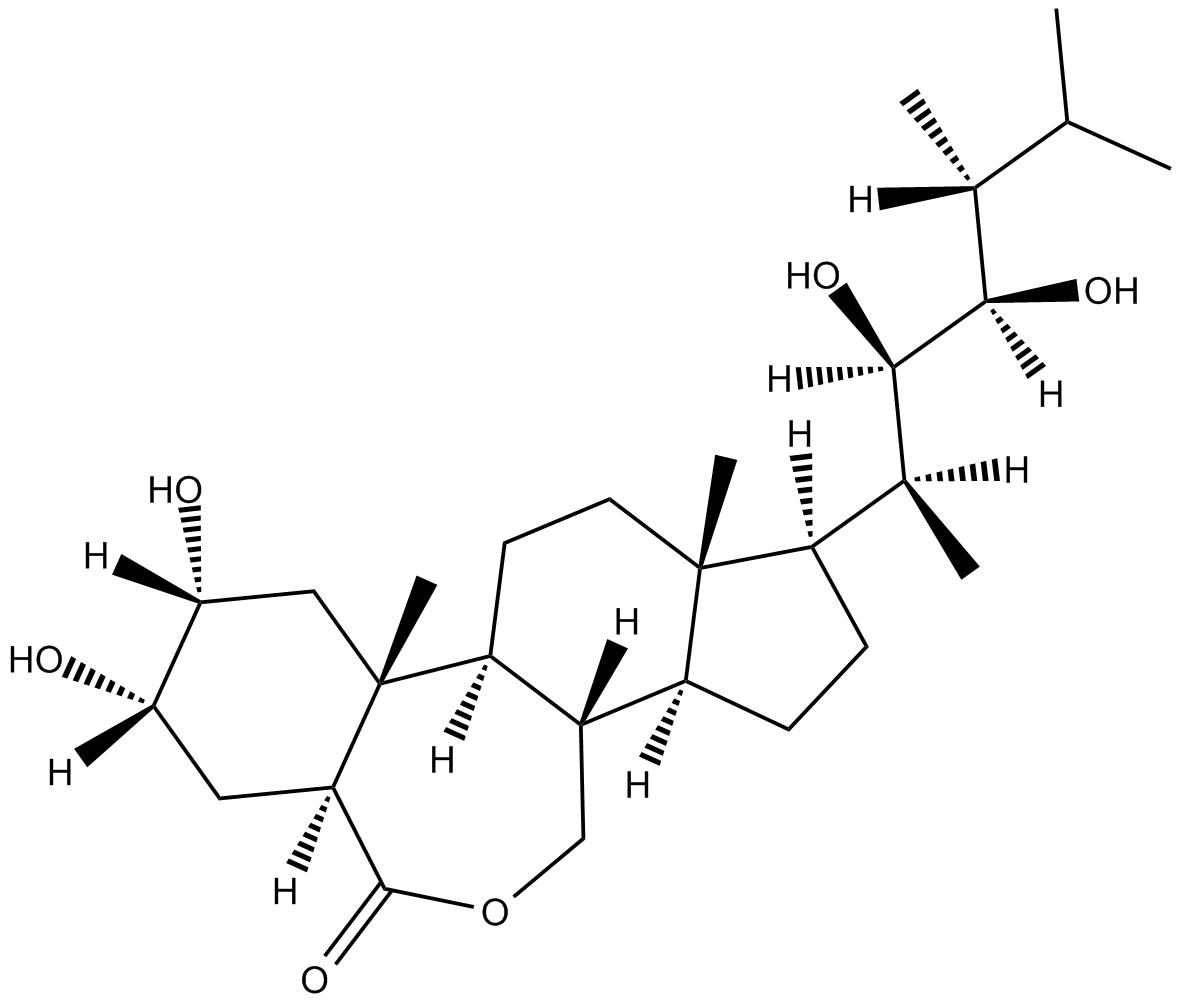Epibrassinolide (Synonyms: EBL, 24-Epibrassinolide) |
| カタログ番号GC11834 |
Epibrassinolide (24-Epibrassinolide) は、どこにでも存在する植物成長ホルモンであり、植物の重金属や農薬ストレスを軽減する大きな可能性を示しています。エピブラシノリドは、非腫瘍細胞の増殖に影響を与えることなく、さまざまな癌細胞の潜在的なアポトーシス誘導因子です。
Products are for research use only. Not for human use. We do not sell to patients.

Cas No.: 78821-43-9
Sample solution is provided at 25 µL, 10mM.
Epibrassinolide (24-Epibrassinolide) is a ubiquitously occurring plant growth hormone which shows great potential to alleviate heavy metals and pesticide stress in plants[1]. Epibrassinolide is a potential apoptotic inducer in various cancer cells without affecting the non-tumor cell growth[2].
Epibrassinolide (EBR) is a biologically active compound of the brassinosteroids, steroid-derived plant growth regulator family. Cells are incubated with various doses (0-100 μM) of Epibrassinolide for 24 or 48 h and cell viability is determined by MTT assay. Epibrassinolide induced cell viability loss in dose- and time-dependent manner compared to untreated samples in LNCaP and DU145 prostate cancer cells. Increasing concentrations of Epibrassinolide is more effective on LNCaP cell viability loss than DU145 cells suggesting that androgen-dependent cells are more sensitive to Epibrassinolide than androgen-independent prostate cancer cells. In further experiments, 25 μM Epibrassinolide is selected due to its moderate cytotoxic effect on both cell lines. The effect of Epibrassinolide treatment is examined on cell proliferation by counting the cell number within 96 h. A higher and earlier inhibition of cell proliferation is observed in LNCaP than DU145 cells[1].
References:
[1]. Shahzad B, et al. Role of 24-epibrassinolide (EBL) in mediating heavy metal and pesticide induced oxidative stress in plants: A review. Ecotoxicol Environ Saf. 2018 Jan;147:935-944.
[2]. Obakan P, et al. Activation of polyamine catabolic enzymes involved in diverse responses against epibrassinolide-induced apoptosis in LNCaP and DU145 prostate cancer cell lines.Amino Acids. 2014 Mar;46(3):553-64.
Average Rating: 5 (Based on Reviews and 23 reference(s) in Google Scholar.)
GLPBIO products are for RESEARCH USE ONLY. Please make sure your review or question is research based.
Required fields are marked with *




















